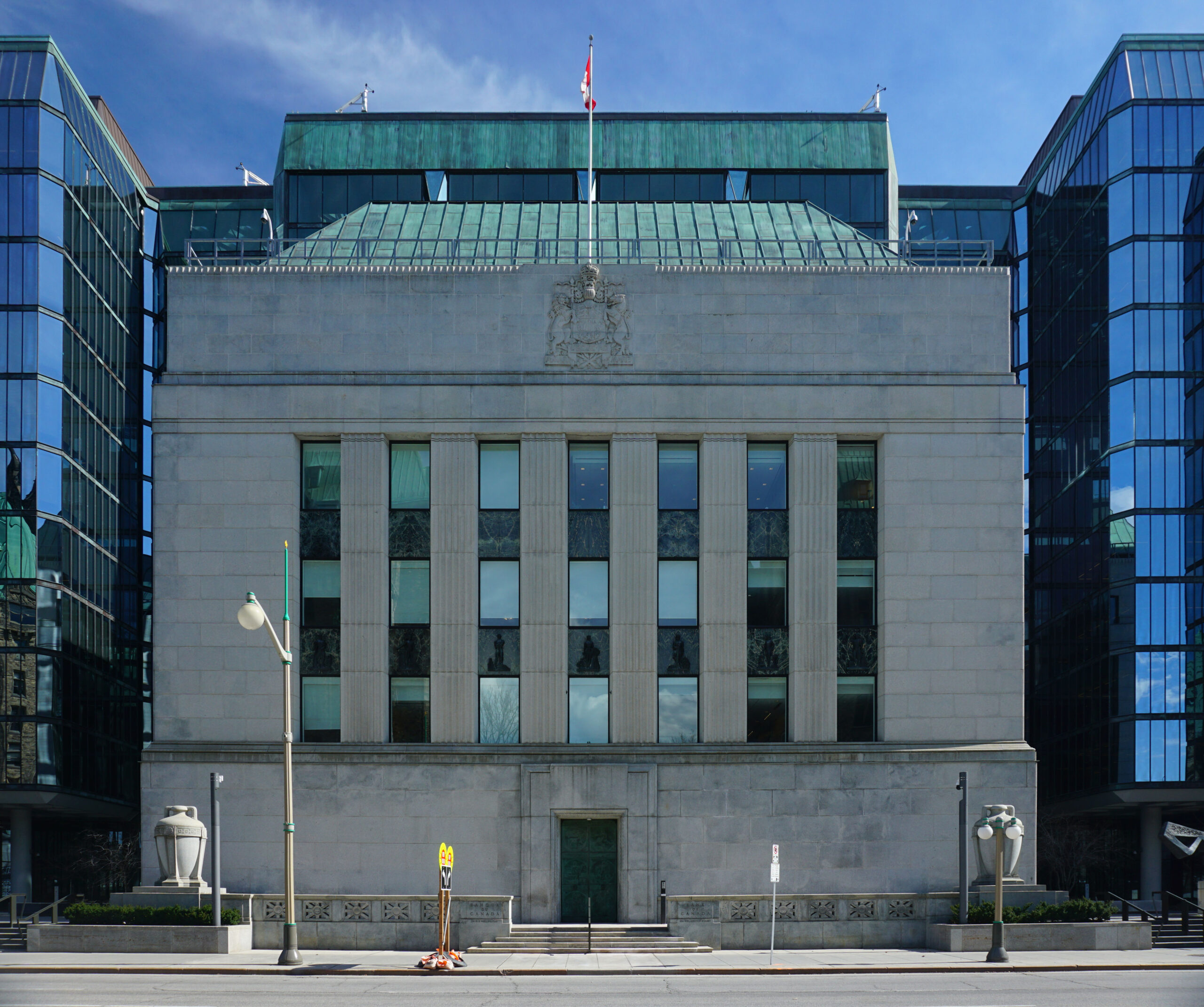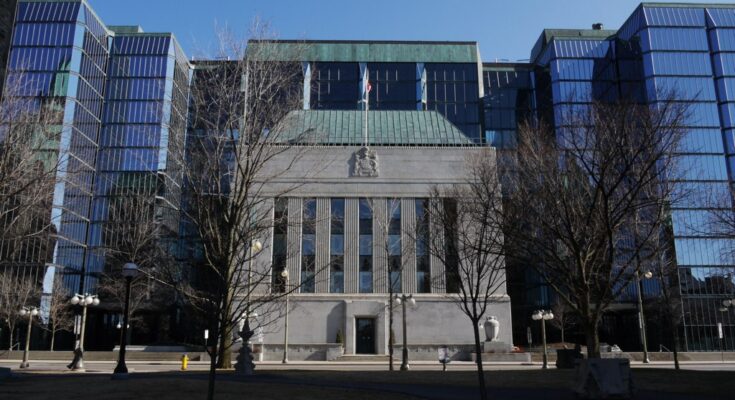Table of Contents
Introduction – bank of canada hike interest
Understanding the Significance of Interest Rate Hike
The Bank of Canada’s decision to increase interest rates has far- reaching ramifications for Canadian frugality. Borrowing and lending patterns, investment opinions and overall profitable growth all depend heavily on interest rates. We will explore what impacts are being felt from their recent rate increase by various sectors within society.
Historical Context of Bank of Canada’s Monetary Policy
Before we can assess the current interest rate hike, it’s essential to comprehend its literal environment within which it occurred. Over the times, Bank of Canada financial policy has been determined by colorful profitable conditions, affectation rates, and employment trends; which shaped its approach to interest rates over time. This context helps us appreciate the rationale behind their recent decision.

The Rationale Behind the Decision – bank of canada hike interest
Economic Indicators Leading to the Hike
Before making interest rate decisions, the Bank of Canada tracks a variety of economic indicators. Key elements like GDP growth, inflation rates, employment figures and consumer spending are examined in order to gauge economic health. By carefully considering such data points, central bank officials gain insight into whether an interest rate hike may be necessary in order to reach their monetary policy objectives.
Considerations and Predictions by Experts
Economists and financial experts also play a crucial role in the decision-making process. Their analyses and predictions provide valuable input to the central bank. By considering expert opinions, the Bank of Canada can make a more informed and balanced decision about adjusting interest rates.
The Impact on Borrowers and Savers – bank of canada hike interest
Effect on Mortgage Rates and Housing Market
An increase in interest rates can have mischievous impacts for borrowers, particularly in the casing request. Advanced interest rates translate into increased mortgage rates, making homeownership less affordable for some and conceivably leading to an profitable retardation and reduction in casing prices.
Implications for Personal Loans and Credit Cards
Besides affecting mortgage rates, the interest rate hike also affects personal loans and credit cards. Borrowers will face higher borrowing costs, potentially reducing consumer spending and affecting overall economic activity.
Opportunities for Savers and Investors
On the flipside, higher interest rates may present opportunities for savers and investors. Banks may offer higher rates on savings accounts and other investments to make saving more enticing; however, this could result in reduced consumer spending across certain sectors of the economy.
Analyzing the Business Landscape – bank of canada hike interest
Influence on Corporate Borrowing and Investment
Businesses reliant on borrowing may experience higher costs as a result of rising interest rates, potentially altering corporate investment decisions and altering expansion plans and business growth plans.
Impact on Small Businesses and Startups
Small businesses and startups, often dependent on loans to fund their operations, may experience challenges in accessing affordable credit. The interest rate hike could create financial strain, impacting their ability to sustain and expand their businesses.
The Effect on Consumer Spending and Retail – bank of canada hike interest
Understanding Consumer Behavior After the Hike
Consumer spending is the lifeblood of our frugality, and an interest rate hike can have profound ramifications on consumer spending habits. When borrowing costs increase, some individualities may cut back on optional purchases altogether, leading to changes in retail deals and overall profitable exertion.
Retail Sales and Customer Sentiment
The retail sector closely monitors consumer sentiment, which is influenced by interest rate changes. Consumer confidence may be impacted by the interest rate hike, affecting retail sales volumes and profitability.
Inflationary Pressures and Consumer Prices – bank of canada hike interest
Relationship Between Interest Rates and Inflation
Understanding the relationship between interest rates and affectation is consummate for understanding its broader profitable impacts. Advanced interest rates can reduce consumer spending and curb affectation, while lower rates can spur profitable exertion and create growth openings.
Analyzing the Potential Impact on Prices
An interest rate increase can result in increased costs for businesses, which may then be passed along to consumers via higher prices for goods and services. Controlling inflation becomes a crucial consideration for the central bank in such scenarios.
The Canadian Dollar and International Trade – bank of canada hike interest
Exchange Rate Fluctuations and Exporters
An interest rate hike can influence the value of the Canadian dollar relative to other currencies. A stronger Canadian dollar may benefit importers but can pose challenges for exporters as their products become relatively more expensive in foreign markets.
Import Costs and International Competitiveness
Higher interest rates can impact import costs, affecting businesses that rely on imported raw materials or finished goods. The competitiveness of Canadian products in the global market may also be affected.
Government’s Response and Fiscal Policy – bank of canada hike interest
Collaborative Measures to Mitigate Hike Impact
Government and central bank officials often work closely together to mitigate the economic repercussions of an interest rate increase through fiscal policies such as taxes and spending decisions that support economic stability and growth.
Taxation and Spending Decisions
Tax and government spending reform can have a dramatic effect on consumer behaviors, investment patterns and overall economic activity. Government response plays an integral part in complementing central bank efforts.
Real Estate Market Dynamics – bank of canada hike interest
Evaluating the Housing Bubble Concerns
Concerns over a housing bubble could surface from an increase in interest rate hikes. A clear understanding of real estate dynamics is vital when assessing risks and opportunities presented by such increases.
Long-Term Prospects of Real Estate Investments
Investors and homeowners will likely be eager to investigate the long-term potential for investing in real estate. Analyzing historical data and expert opinions can provide insights into the potential outcomes after the interest rate hike.
Stock Market and Investments – bank of canada hike interest
Volatility in Stock Prices Post Hike
The stock market is sensitive to changes in interest rates, and an interest rate hike can lead to increased volatility. Investors may react to such changes, affecting stock prices across various sectors.
Investment Strategies for Different Sectors
Investors will need to adjust their investment strategies based on how the increase of interest rates affects individual sectors, understanding trends within those industries can aid investors in making more informed decisions.
Employment and Job Market – bank of canada hike interest
Employment Trends and Impact on Hiring
The interest rate hike’s effect on the job market is crucial to monitor. It may impact hiring decisions by businesses, potentially influencing employment trends.
Unemployment Rate Projections
Higher interest rates may affect economic growth, which, in turn, could impact the unemployment rate. Projections of future unemployment rates will be significant for policymakers and businesses.
Banking and Financial Institutions – bank of canada hike interest
Response of Banks and Lenders to the Hike
Banks and financial institutions play a central role in transmitting changes in interest rates to consumers and businesses. Understanding how they respond to the hike is essential to grasp its full impact.
Implications for Financial Stability
A stable financial system is vital for economic health. Assessing the implications of the interest rate hike on financial stability will be important for policymakers and regulators.
Analyzing the Central Bank’s Future Outlook
Guidance on Future Rate Decisions
The central bank’s communication about future rate decisions provides crucial guidance to the market. Understanding their outlook can help businesses and individuals plan for the future.
Contingencies for Unforeseen Circumstances
The economy is subject to uncertainties, and the central bank must prepare for unforeseen circumstances. Analyzing their contingency plans provides insights into their approach to managing economic challenges.
Public Reaction and Sentiment
Public Perception of the Hike
The public’s reaction to the interest rate hike can influence economic sentiment. Understanding how the general population perceives the decision can provide valuable insights.
Social Media and News Analysis
Social media and news platforms are powerful sources of public sentiment. Analyzing discussions and media coverage can shed light on the broader impact of the interest rate hike on the public.
Case Studies of Previous Rate Hikes
Learning from Past Experiences
Examining previous interest rate hikes and their outcomes can offer valuable lessons for policymakers and businesses alike. Case studies provide historical context for better decision-making.
Comparing Outcomes and Lessons
Comparing different rate hike scenarios and their results helps in understanding the nuances of interest rate policies and their effects on the economy.
International Comparisons and Benchmarks
How Other Central Banks Approach Interest Rates
Comparing the Bank of Canada’s approach to interest rates with other central banks’ strategies provides a broader perspective on global monetary policies.
Lessons from Global Economic Landscape
Economic landscapes across the globe are interdependent, providing valuable insights into potential challenges and opportunities facing Canada’s economy.
Summary and Key Takeaways
Recapitulating the Major Findings
Summarizing the key points and major findings from the various sections helps readers grasp the overall impact of the interest rate hike.
Potential Long-term Implications
Consideration of the implicit long-term counterarguments associated with interest rate hikes allows compendiums to reflect on Canada’s profitable path forward.
FAQs
What does it mean if the interest rates increase?
Explaining what an interest rate hike means and its significance in the economy can provide readers with invaluable knowledge.
How frequently does the Bank of Canada adjust interest rates?
An understanding of monetary policy requires understanding its dynamics. A breakdown of Bank of Canada interest rate changes can help readers do just that.
Can the interest rate hike affect my personal savings?
Addressing the impact of an interest rate hike on personal savings helps readers gauge its implications on their financial well-being.
What are the indicators the Bank of Canada considers before making rate decisions?
Listing and explaining the key indicators considered by the Bank of Canada before making rate decisions gives readers insights into the central bank’s decision-making process.
Conclusion
Conclusion of the Bank of Canada Interest Rate Hike
In conclusion, the Bank of Canada’s interest rate hike has numerous ramifications for Canada’s economy. By exploring various aspects – such as its effects on borrowers, savers, businesses and the broader economic environment – this article offers a thorough examination of this decision’s ramifications. As time passes and economic realities shift further ahead, policymakers, businesses and individuals will evaluate and adapt strategies according to these effects; understanding their significance will play a vital part in shaping Canada’s path moving forward.




